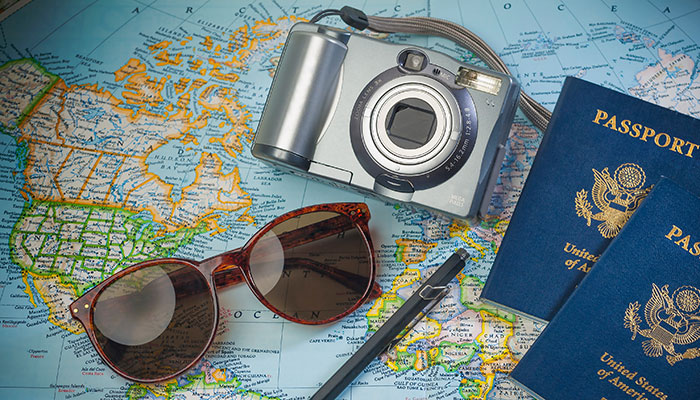
Planning a trip?
Your health insurance might not come with you!
International travel. If you need medical care outside the United States—an ER visit, hospitalization, ambulance, medical exam, labs, or a medical evacuation—there are very few circumstances in which original Medicare will help out. You should be prepared to pay 100 percent of any medical fees incurred if you are traveling outside the fifty states, District of Columbia, Puerto Rico, the U.S. Virgin Islands, Guam, American Samoa, and the Northern Mariana Islands.
If you have original Medicare and a supplemental plan (Medigap), your supplement may pay up to 80 percent of foreign travel emergency care during the first sixty days outside the country. Contact your insurer to confirm what they will and won’t cover, and if there are deductibles or copayments that apply. Ask if they have a service to help you find local providers. Also ask about nonemergency care such as COVID testing or blood pressure checks. And about the billing procedure: What paperwork do you need for reimbursement later?
Likewise, if you have Medicare Advantage, contact your plan before you go. Some plans have a foreign travel clause with support services such as assistance finding care, vaccination clinics, or a call center for translation. Others follow original Medicare’s lead and provide no coverage at all.
Medicare Part D plans do not pay for medicines purchased abroad. Furthermore, you may not be able to find what you need. Stock up before you go.
Travel within the United States. If you have original Medicare, your coverage holds wherever you go in the United States. The same is true for any supplemental insurance. And typically for Part D (prescriptions).
If you have Medicare Advantage, find out if your destination is within the local network. Some plans offer a “travel benefit” that allows for up to six months of out-of-network care. Call your insurer to confirm emergency and nonemergency coverage for domestic travel.
Consider travel health coverage. Special insurance for travel is available to address medical care needs, but read the policy carefully. There are often exceptions, waivers, and disqualifying events. If you are booking a flight or cruise, the carrier may offer this type of insurance. The best deals, however, are direct from insurance companies. But you must buy soon after your first trip payment. Beyond emergency care, you might also consider adding a preexisting condition waiver to cover nonemergency care for chronic conditions.
Ready to hit the road? Let’s talk about wise preparations.
Give us a call at 239-302-7650.


